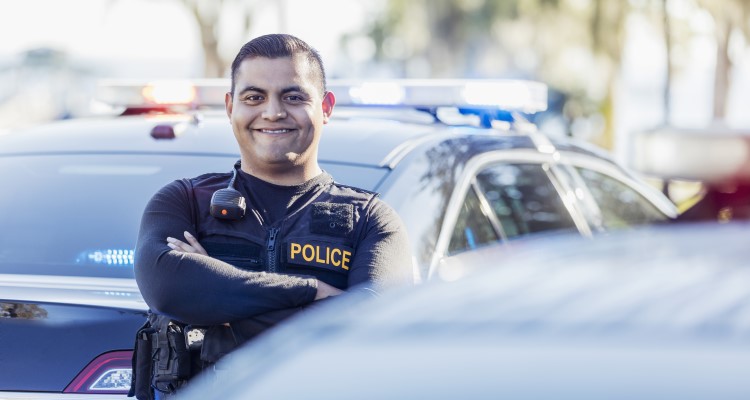Criminal Justice

The criminal justice profession is looking for dedicated, hardworking, and ethical men and women to fill the ongoing need for professionals in this challenging field. As a criminal justice professional, you will handle situations involving people who are often at a low point in their lives, whether victims of crime, suspects, or others in need of your help. These situations provide an opportunity for you, as a criminal justice professional, to be a light in someone’s life when they need it most.
Is Criminal Justice the right major for you?
Yes, if:
- You have good interpersonal and communication skills.
- You are drawn toward helping people, especially people in crisis.
- You have a strong moral compass and value integrity.
- You like work that is challenging, exciting, and ever-changing.
- You aren’t afraid to be assertive and lead when necessary.
- You are a detailed person with a high level of discernment and can “read” situations accurately.
What You’ll Learn
Corban’s criminal justice program integrates biblical truths into every course, giving you a strong foundation as you prepare to make a difference in this demanding career. You’ll be challenged to develop strong ethics, teamwork, critical thinking skills and communication, all essential in the criminal justice profession.
Ethics
The criminal justice profession demands high ethical standards and accepts nothing less. Criminal justice officers are given great authority and with that authority comes the expectation that they will conduct themselves in a manner befitting the highest standards of the profession.
Teamwork
Nearly all criminal justice jobs require a great deal of teamwork. Developing interpersonal/relationship building skills are essential.
Critical Thinking Skills
Careers in the criminal justice professions are demanding, to say the least, and require excellent critical thinking skills. Criminal justice professionals must be objective in their analysis, evaluation and judgment of issues they face and be able to quickly determine the proper course of action.
Communication
Ninety-five percentof the work of a criminal justice officer involves effective communication in one form or another. Effective communication can instill confidence, defuse situations, articulate the facts of a criminal investigation and convey compassion.
Courses
Learn from expert instructors with decades of experience in the criminal justice field and access to many experienced criminal justice professionals at the city, county, state and federal levels. You’ll receive practical, relevant instruction in topics such as:
- Criminal Investigation
- Crisis Counseling
- Corrections
- Juvenile Delinquency
- Criminology
- Administration of Justice
Learn what courses you’ll need to complete your degree.
Faculty
Dr. Sandee Flint – Assistant Professor of Criminal Justice / Forensic Psychology
Get real-world experience in Oregon’s capital city.
Corban’s location in Salem, Oregon, offers close proximity to law enforcement agencies, correctional facilities and Oregon’s state-of-the-art Public Safety Training Academy. Criminal justice students can see firsthand how these agencies operate and take advantage of the expertise of working public safety professionals through tours, guest lectures, adjunct instruction and internships.
Hands-On Learning
Participate in a wide range of field activities designed to provide real world experience and a practical understanding of various aspects of the criminal justice system. From K9 training to tours of law enforcement agencies, crime labs, courts and correctional facilities, you’ll have opportunities to see what a career in law enforcement, corrections, parole and probation, investigation or intelligence could look like.
Firearms Training
Firearms courses allow you to train with a variety of the latest law enforcement weapons under the supervision of professional firearms instructors. Criminal justice students may use hours accumulated in firearms training toward their internship.
Criminal Justice Student Association
Criminal justice students join the Criminal Justice Student Association, which offers professional networking opportunities, guest lecturers from the criminal justice field, and a support network of fellow criminal justice students. Membership in this association also allows you to take the firearms training courses.
Internships with Local Law Enforcement
As a criminal justice major, you will complete an internship to gain real life exposure to the career path you may want to pursue after graduation. Student internships have included scenario training with SWAT and K-9 teams, crime lab work, ride-alongs with local law enforcement agencies, working with adult and juvenile corrections, Campus Public Safety and more. Many students are also involved in cadet and reserve police officer programs with local law enforcement organizations.
Career Opportunities
Corban’s criminal justice program gives you practical training to serve your community through hundreds of law enforcement and related careers, such as:
- city and state police
- county sheriff
- corrections
- law
- federal law enforcement (FBI, DEA, ATF, US Marshall, Secret Service, Border Patrol, etc.)
With a foundation in the biblical principles of law, justice and restoration, you’ll be prepared to begin your career immediately after graduation or to continue on to graduate school to pursue your long-term career goals.









